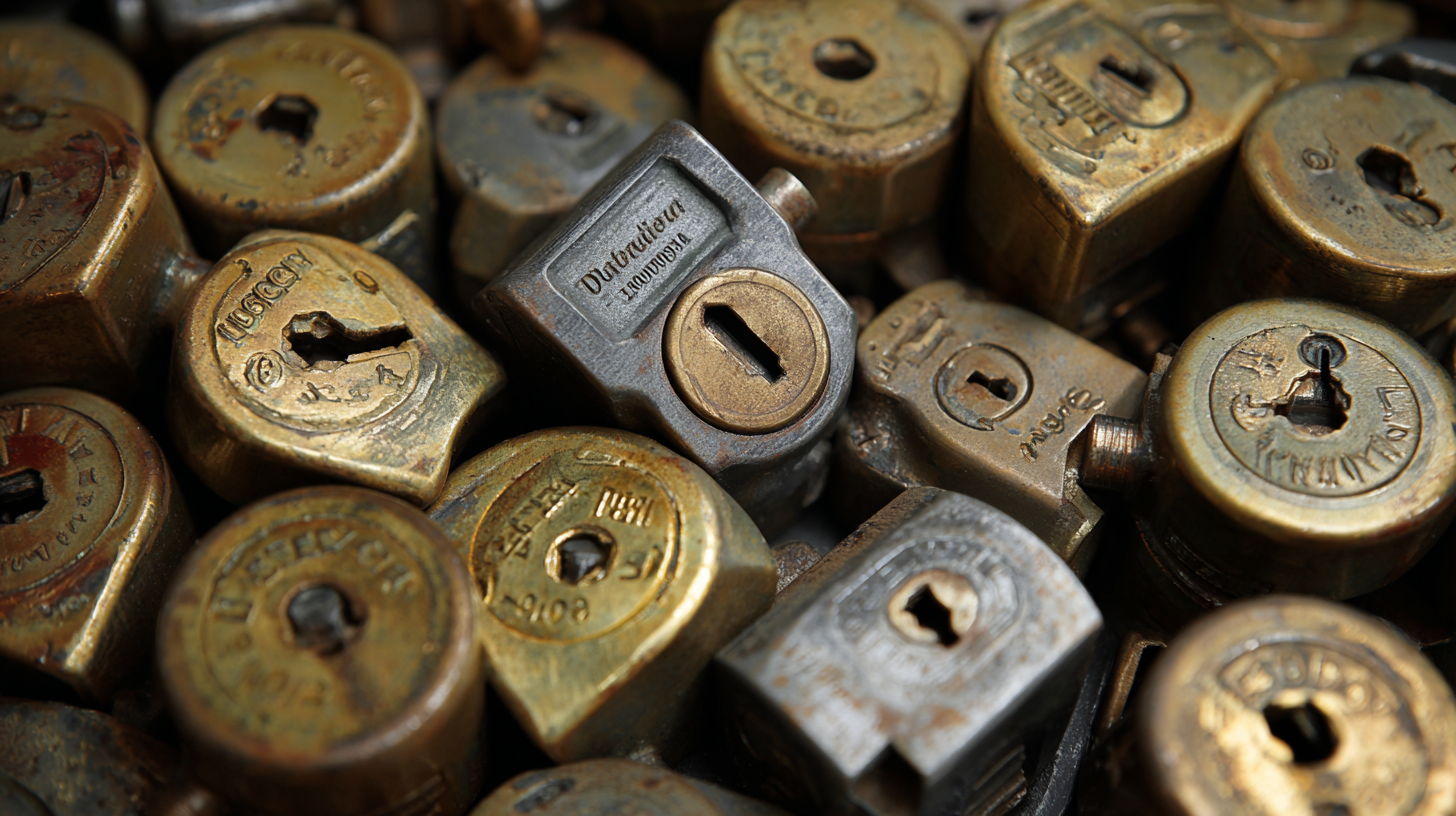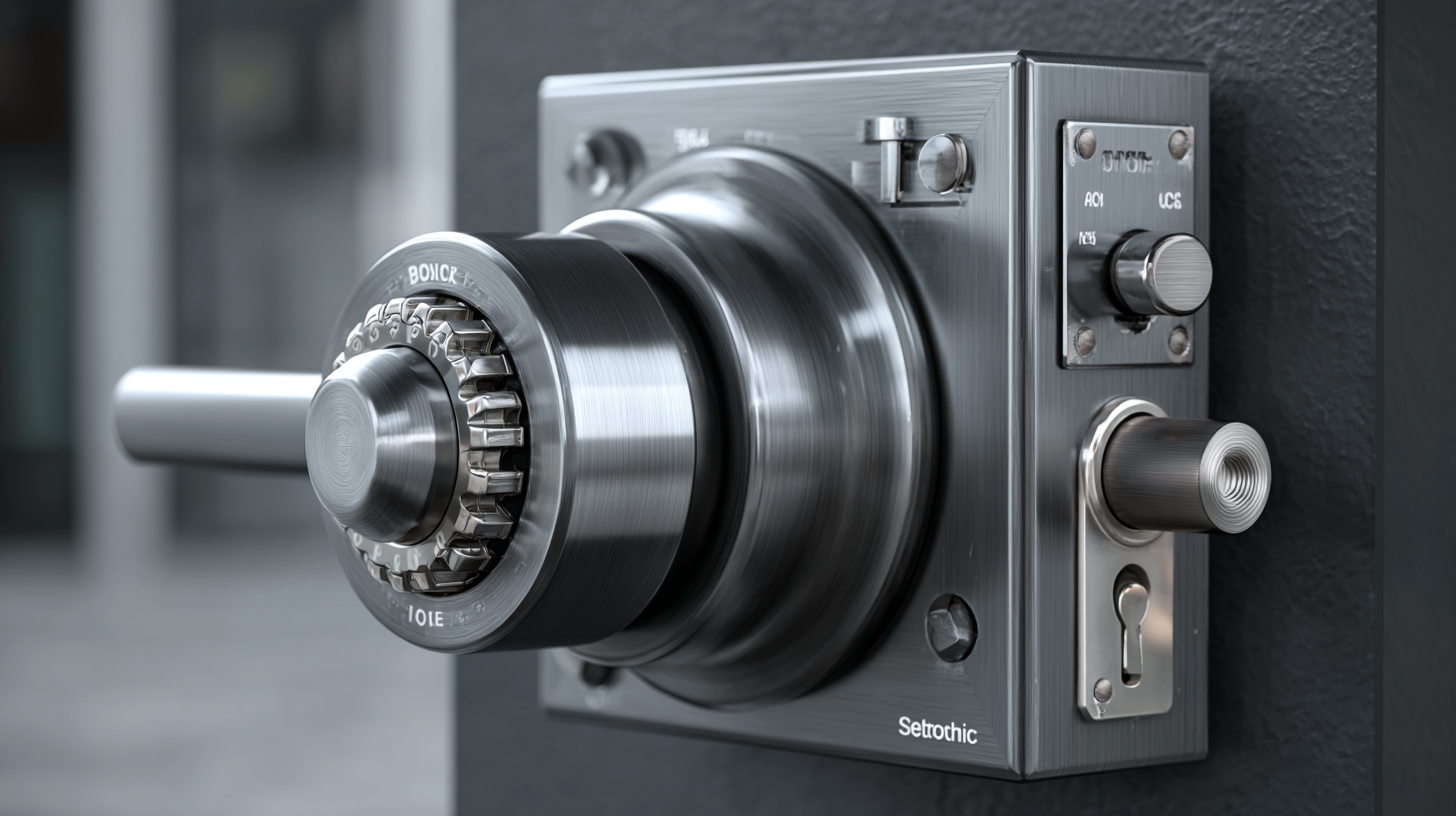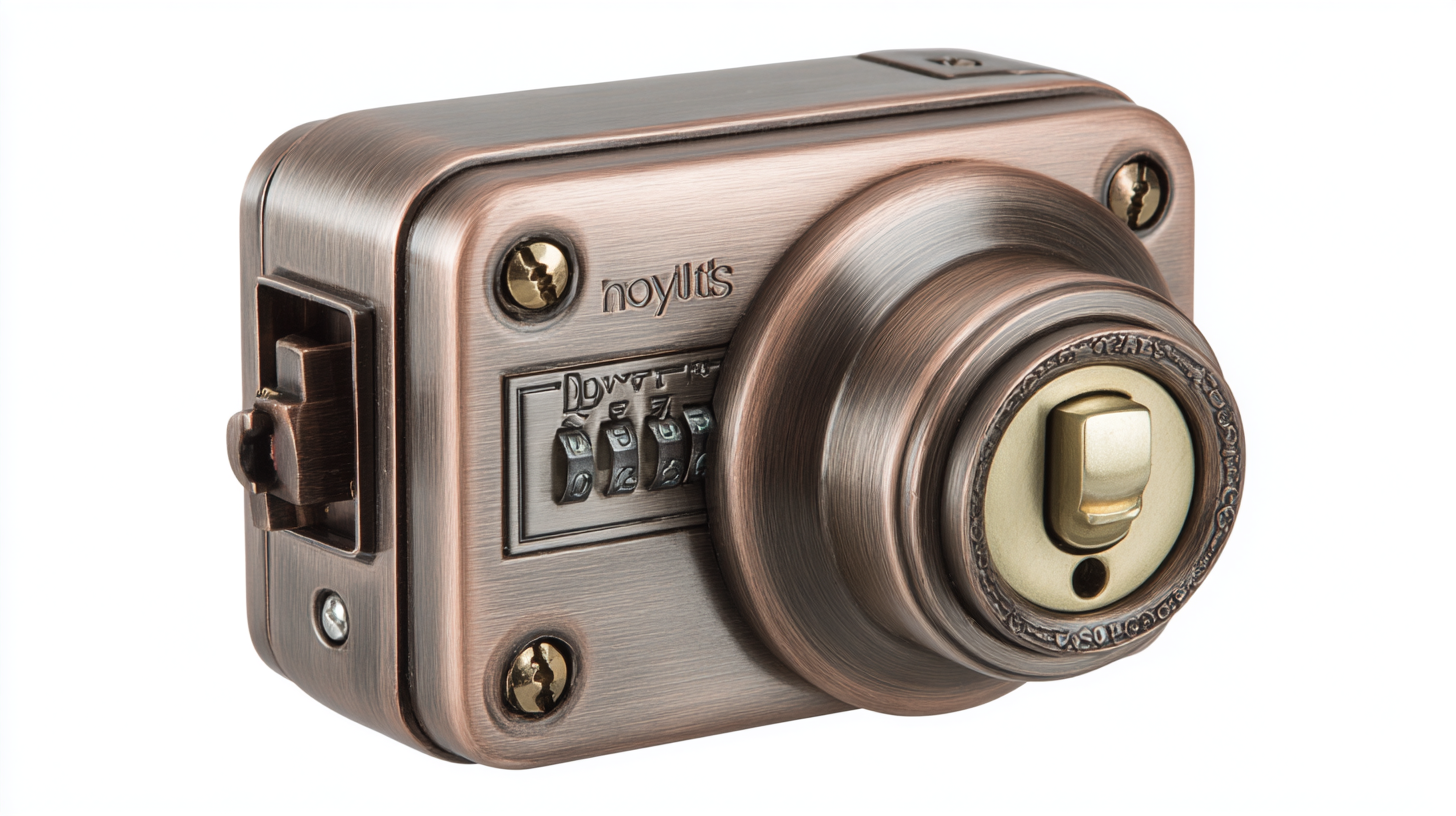
7 Essential Tips for Choosing the Best Deadbolt Locks for Global Buyers
When it comes to securing your home or business, choosing the right deadbolt locks is paramount. According to a report by the Security Industry Association, a staggering 60% of burglaries occur through forcible entry, highlighting the crucial role of robust locking mechanisms. Deadbolt locks are considered one of the most effective forms of residential security, providing an extra layer of protection compared to standard locks. They are designed to withstand considerable force, making them a favorite among homeowners and global buyers seeking to enhance their property security. As factors such as material quality, locking mechanism, and certification standards play significant roles in their effectiveness, this blog will outline seven essential tips to help you make an informed decision when selecting the best deadbolt locks for your needs.

Factors to Consider When Assessing Deadbolt Lock Quality and Durability
 When assessing deadbolt lock quality and durability, it's crucial to consider both the material and the design. High-quality deadbolt locks are typically made from solid brass or stainless steel, which offer better resistance to wear and tear over time. Look for locks that feature a hardened steel bolt, as this adds an extra layer of protection against drilling and physical attacks. Additionally, the design of the deadbolt itself plays a vital role; a single-cylinder deadbolt is commonly used for residential purposes, while double-cylinder options provide enhanced security for homes with glass doors.
When assessing deadbolt lock quality and durability, it's crucial to consider both the material and the design. High-quality deadbolt locks are typically made from solid brass or stainless steel, which offer better resistance to wear and tear over time. Look for locks that feature a hardened steel bolt, as this adds an extra layer of protection against drilling and physical attacks. Additionally, the design of the deadbolt itself plays a vital role; a single-cylinder deadbolt is commonly used for residential purposes, while double-cylinder options provide enhanced security for homes with glass doors.
Another important factor is the testing standards that the deadbolt meets. Look for products that comply with the American National Standards Institute (ANSI) criteria, which rates locks on a scale from Grade 1 (highest security) to Grade 3 (lowest). Locks that have passed these stringent tests are more likely to deliver consistent performance and durability. In addition, considering the lock's weather resistance can be beneficial, especially for buyers in varying climates; look for models with weather-stripping and corrosion-resistant features to ensure longevity regardless of environmental conditions.
Understanding the Importance of Warranty and After-Sales Support
When selecting a deadbolt lock, understanding the importance of warranty and after-sales support is crucial for global buyers. A study by the National Institute of Standards and Technology (NIST) indicates that nearly 20% of individuals experience lock malfunctions within the first five years of ownership. This statistic underscores the necessity of a solid warranty to safeguard your investment. A robust warranty not only covers repairs or replacements but also reflects a manufacturer’s confidence in their product's reliability.
Furthermore, after-sales support plays a pivotal role in ensuring customer satisfaction. According to a report by the Consumer Product Safety Commission (CPSC), customers who have access to reliable after-sales service report a 30% higher satisfaction rate with their purchases. This service could include installation assistance, troubleshooting guidance, or even direct communication channels with the manufacturer. Brands that provide exceptional after-sales support often foster loyal customers, and this loyalty can translate into long-term benefits, such as repeat purchases and positive word-of-mouth referrals. Therefore, when choosing a deadbolt lock, prioritize warranties and after-sales support to ensure peace of mind and the protection of your property.
Analyzing Repair Costs for Different Types of Deadbolt Locks
When choosing deadbolt locks, understanding the repair costs associated with different types is crucial for global buyers. According to a recent analysis by Custom Market Insights, the global smart lock market is expected to soar to USD 10.74 billion by 2033, driven by a compound annual growth rate (CAGR) of 16.16%. This rapid growth reflects consumers' increasing reliance on advanced locking mechanisms, which often come with varying repair costs depending on the technology used.
Traditional deadbolts generally require less frequent repairs compared to smart locks; however, the latter's integration with smart home systems can lead to higher maintenance expenses. For instance, while a basic deadbolt can incur minimal repair fees, smart locks may involve software updates, battery replacements, and connectivity issues that could range from USD 50 to over USD 200, depending on the complexity of the device. As the market for residential smart locks grows—projected to expand from USD 3.4 billion in 2025 to USD 8 billion by 2034—the importance of evaluating these costs should not be overlooked. Investing in a reliable lock means not only considering the initial purchase price but also understanding long-term service and repair expenses.
Cost Analysis of Different Types of Deadbolt Locks
Real-World Examples of Reliable Deadbolt Lock Brands and Their Features
When selecting a deadbolt lock, reliability is paramount. Notable brands such as Schlage, Kwikset, and Baldwin have established themselves in the market with features that emphasize security and user-friendliness. Schlage’s B60N deadbolt is praised for its solid construction and pick-resistant design, making it ideal for homeowners seeking robust security. Kwikset’s SmartKey technology allows for easy rekeying, giving users flexibility and peace of mind if keys are lost.
In addition to brand reputation, consider the specific features that enhance safety. A good tip is to look for deadbolts with a Grade 1 rating, which indicates they meet the highest security standards. Baldwin locks combine traditional craftsmanship with modern technology, featuring options like smart locks that can be accessed via smartphone. These brands not only provide advanced security solutions but also offer aesthetic choices to complement your home’s design, ensuring that you don’t have to sacrifice style for safety.
Tips for Selecting Deadbolt Locks Based on Regional Compliance and Standards
When selecting deadbolt locks, it is crucial for global buyers to understand the regional compliance and standards that govern security systems. Different countries and regions have unique regulations that dictate the specifications, installation methods, and performance standards of deadbolts. Researching these local requirements ensures that the locks you choose meet both safety and legal standards, ultimately protecting your property effectively.

In light of recent developments in security measures, such as the implementation of high-security registration plates in India, it becomes evident that security protocols are evolving. Similarly, choosing a deadbolt lock should align with current security trends and innovations tailored to your region. By prioritizing locks that adhere to local standards, you enhance the security of your home or business, ensuring that your investment is safeguarded against unauthorized access. Remember that biometric locks, smart technology integrations, and sturdier materials often reflect modern compliance standards designed for enhanced protection.
